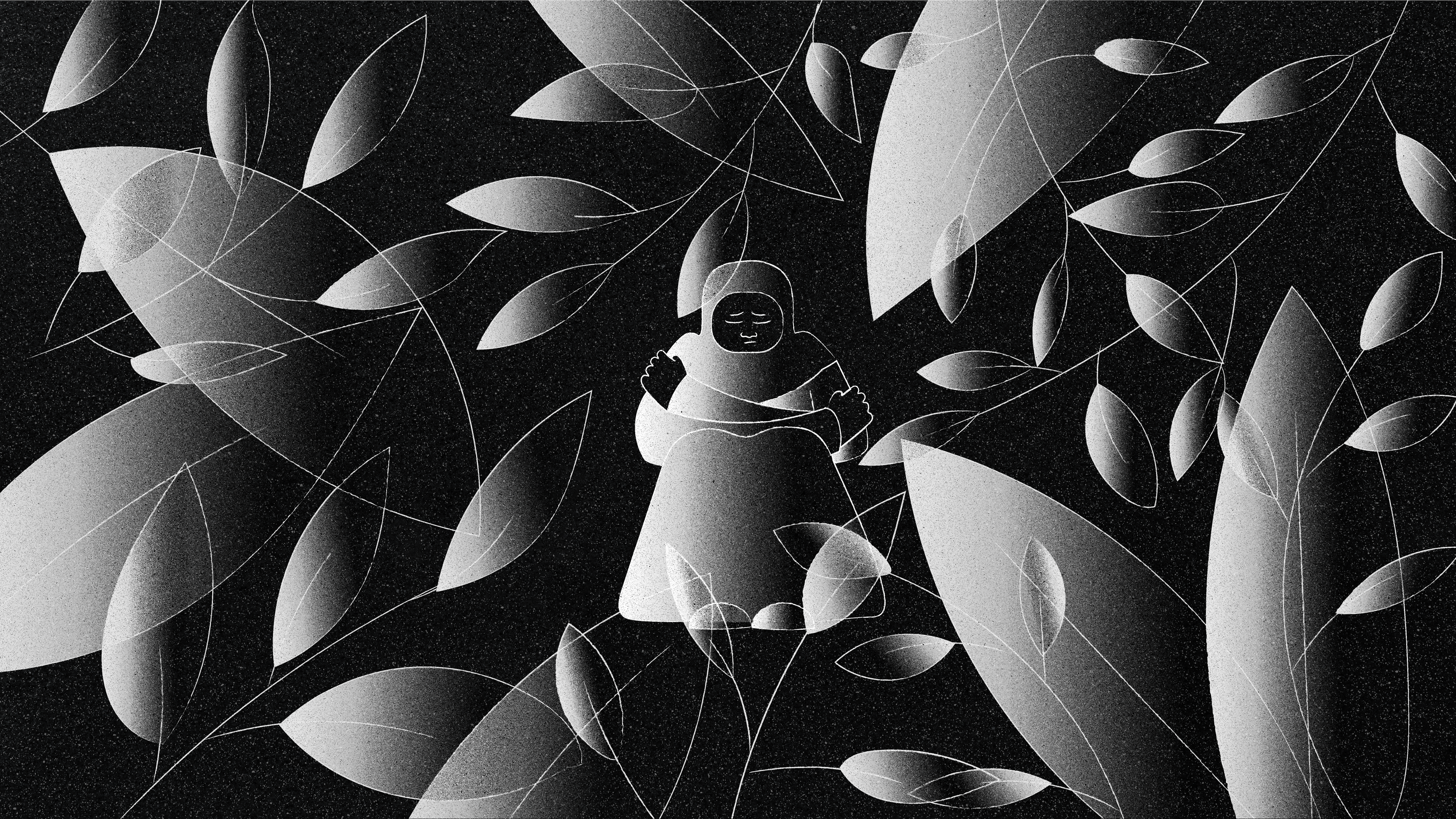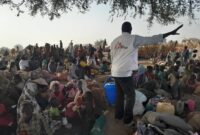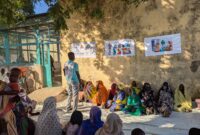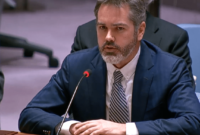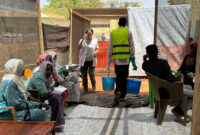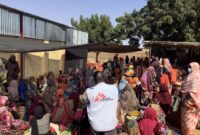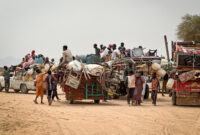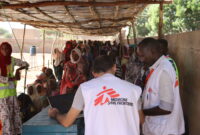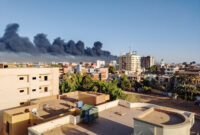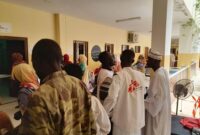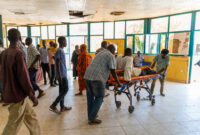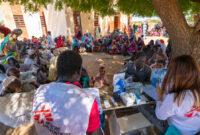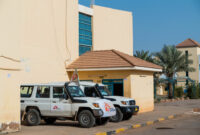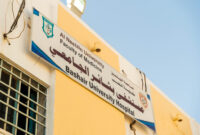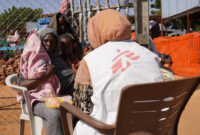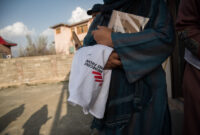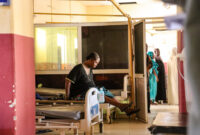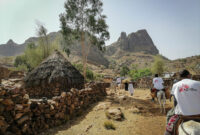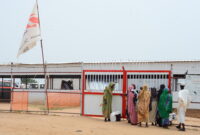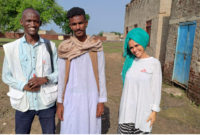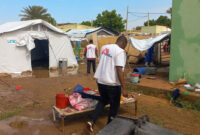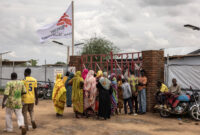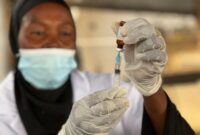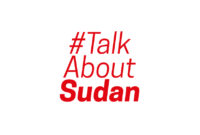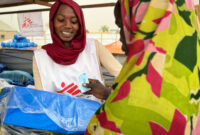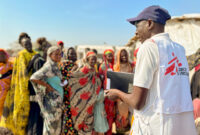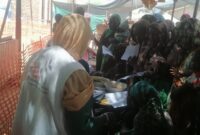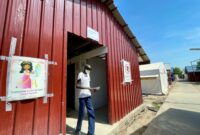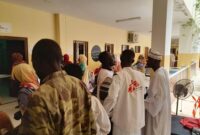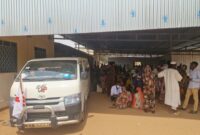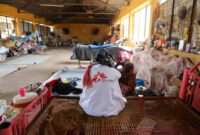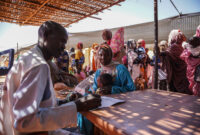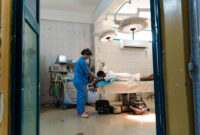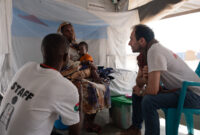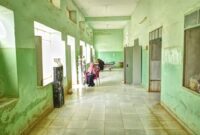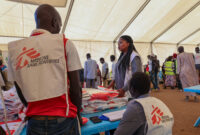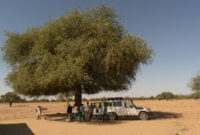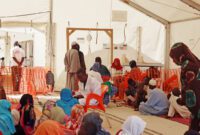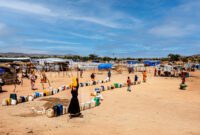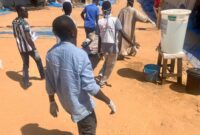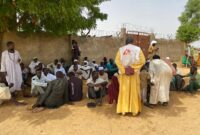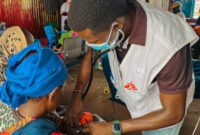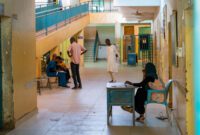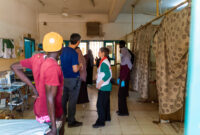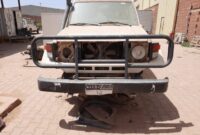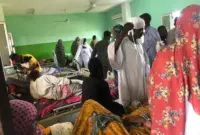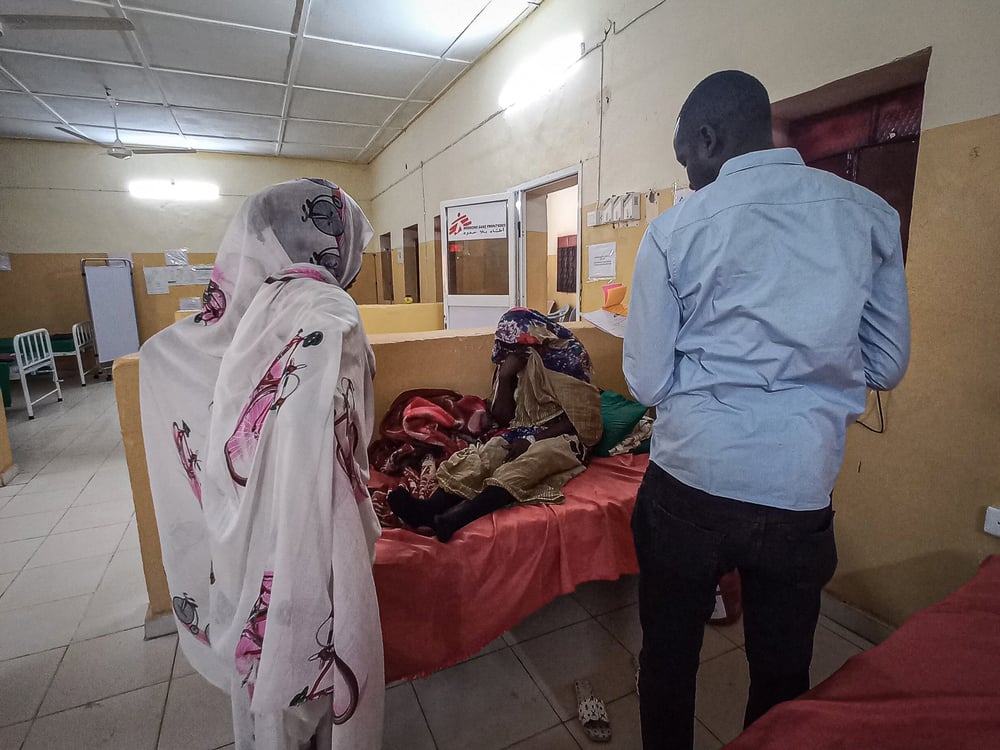Sudan: Stories of violence, forced displacement from South Kordofan
Millions of displaced Sudanese struggle for survival as conflict and hunger grip South Kordofan
“The morning of the attack I was at home and my mother was sick. We ran to escape with my children. I carried my mother on a donkey cart as she could not walk. When we were near the mountains, we stopped to bury her. My two brothers were shot and killed during the escape,” says a displaced woman living in the Nuba Mountains.
Since the war between the Sudanese Armed Forces and the Rapid Support Forces started in April 2023 and spread across Sudan, it is estimated 11 million people have been internally displaced. In the southern state of South Kordofan, where the Nuba Mountains area is located, hundreds of thousands of displaced people are seeking refuge, according to the Sudanese Relief and Rehabilitation Agency.
Before the war started, the region already experienced waves of displacement during the decades of conflict between the Sudan People’s Liberation Movement-North (SPLM-N) and the Sudanese government. Many people have been displaced multiple times, putting their health and lives at greater risk.
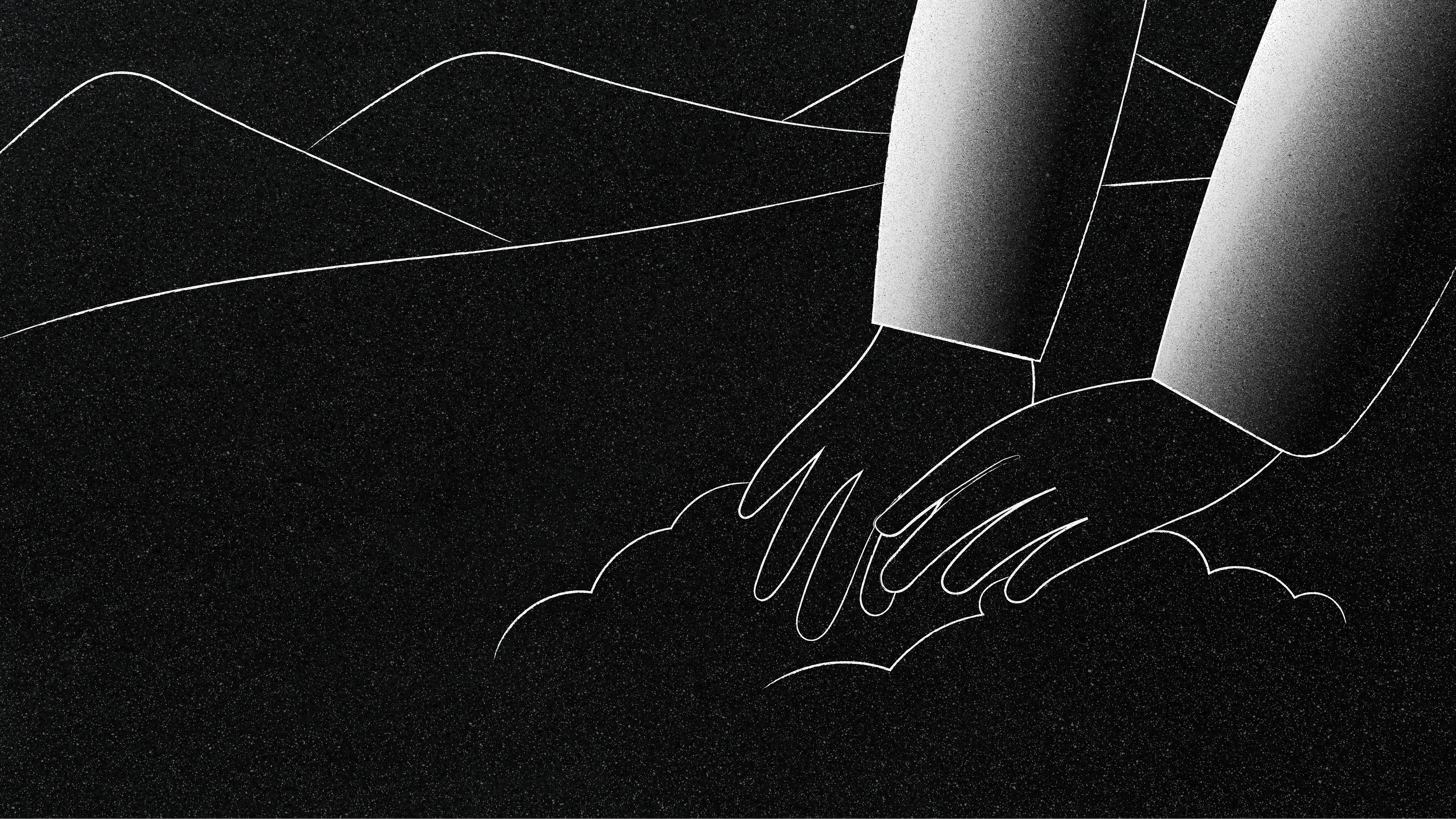
Doctors Without Borders/Médecins Sans Frontières (MSF) currently provides medical care and essential everyday items to displaced people arriving daily. Testimonies collected from displaced people in five camps where MSF works show the harrowing situation they have lived through and the challenges they continue to face.
“They attacked early morning. We took what we could and fled. We lost two of my children on the way. Up to now I don’t know where they are, there is no phone,” says a woman in her late 50s who walked five days without food until she and her family were able to reach Al Hadra, South Kordofan. An airplane bombed and killed her 15-year-old daughter there. “It was the first time I saw bombings. I was in the bush collecting woods for shelter. My daughter had gone to the borehole to fetch water for us. I rushed to my tent and later they [the villagers] brought my daughter’s body to me.”
“When the war broke out, we lost everything. When I arrived at the camp, I did not have milk to breastfeed. My child was sick and kept on crying. I gave him herbs and prayed to God.”
A woman in her 20s
Another woman explains how they managed to survive in Dilling District, South Kordofan: “We went to the forest every night to sleep and use the river as protection. We leaned on the riverbank so the bullets would not hit us. When the shootings stopped, we would rush to the house to get food and water for the children. During an attack, I saw a mother who was breastfeeding. They took her boy and threw him away. If you tried to confront them, they could hit you, even shoot the child. For them, the boy would grow up and fight back.”
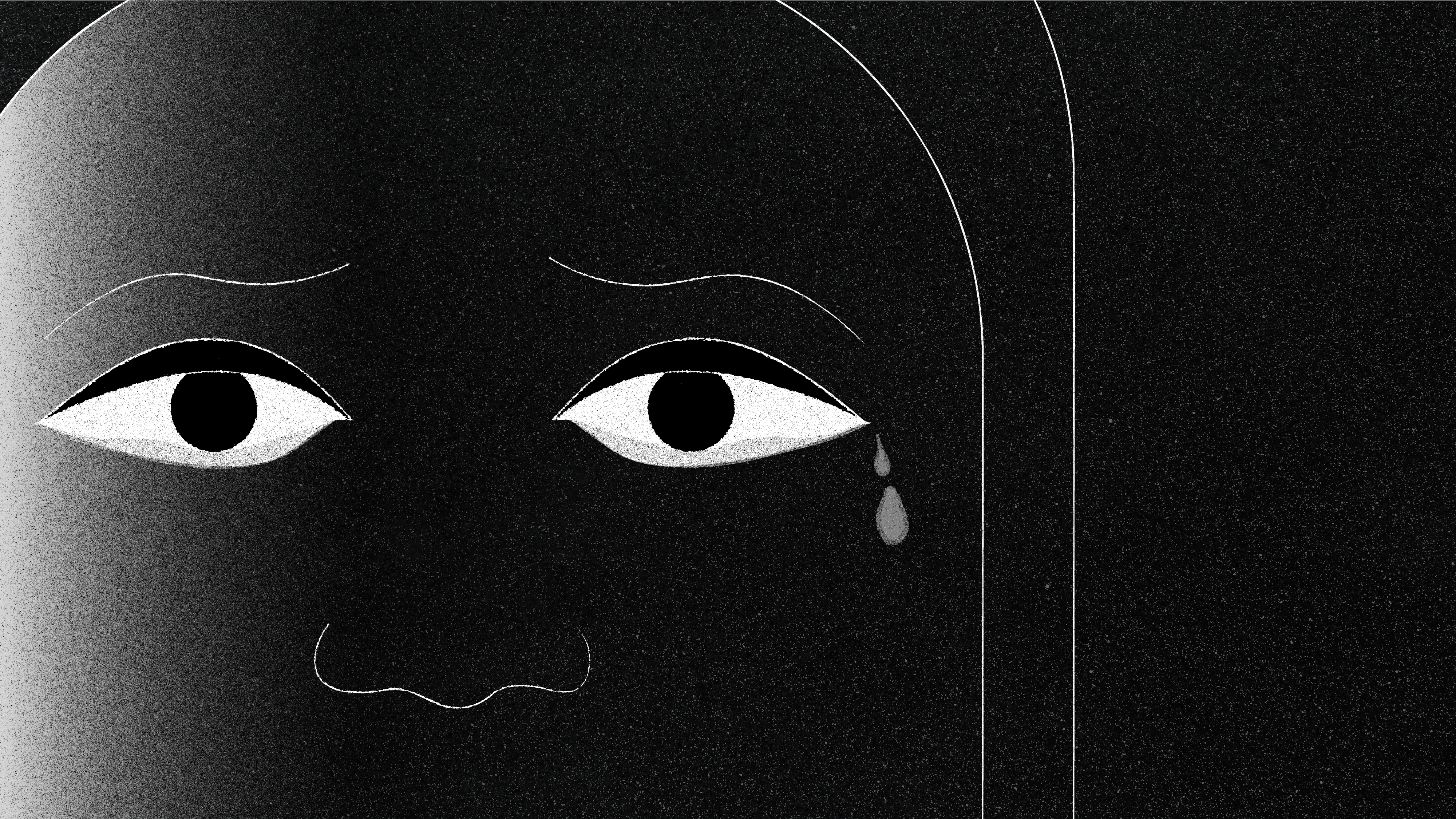
The area of the Nuba Mountains is largely controlled by the SPLM-N. The influx of people arriving in the region that is considered safer than other parts of the country has had an impact on local communities as well. The poor harvest in 2023 combined with difficulties in accessing basic services and a lack of humanitarian assistance led to widespread hunger during the lean season both inside and outside the camps where displaced people are living. MSF teams report many people in need of healthcare, food and water.
“When the war broke out, we lost everything. When I arrived at the camp, I did not have milk to breastfeed. My child was sick and kept on crying. I gave him herbs and prayed to God,” says a woman in her 20s.
A man in his 50s explains soldiers entered Habila, North Kordofan, to kill all the “black people”: “The moment they entered Habila they captured a big part of my family: 13 people, all men. The militia gathered them in one house and shot them all. I ran away.” He fled to Tungul, South Kordofan, where he received some food but where no health service was available, so he fled again. “From Tungul, I went to Korgul displaced camp. Here things are calm. I feel safe. We want to stay here. But we suffered during the rainy season when there is no food. My children got malnourished but none of them died.”
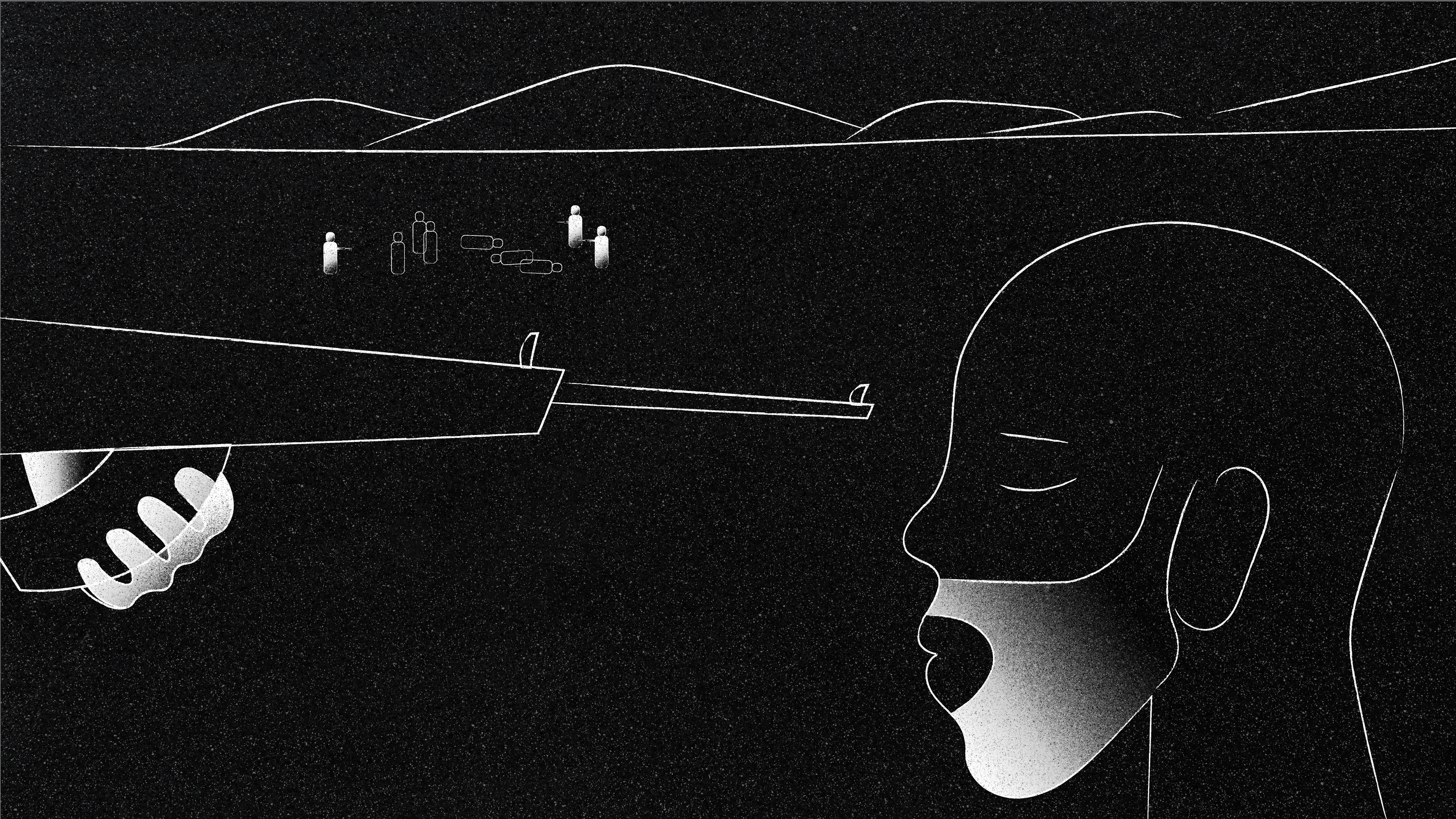
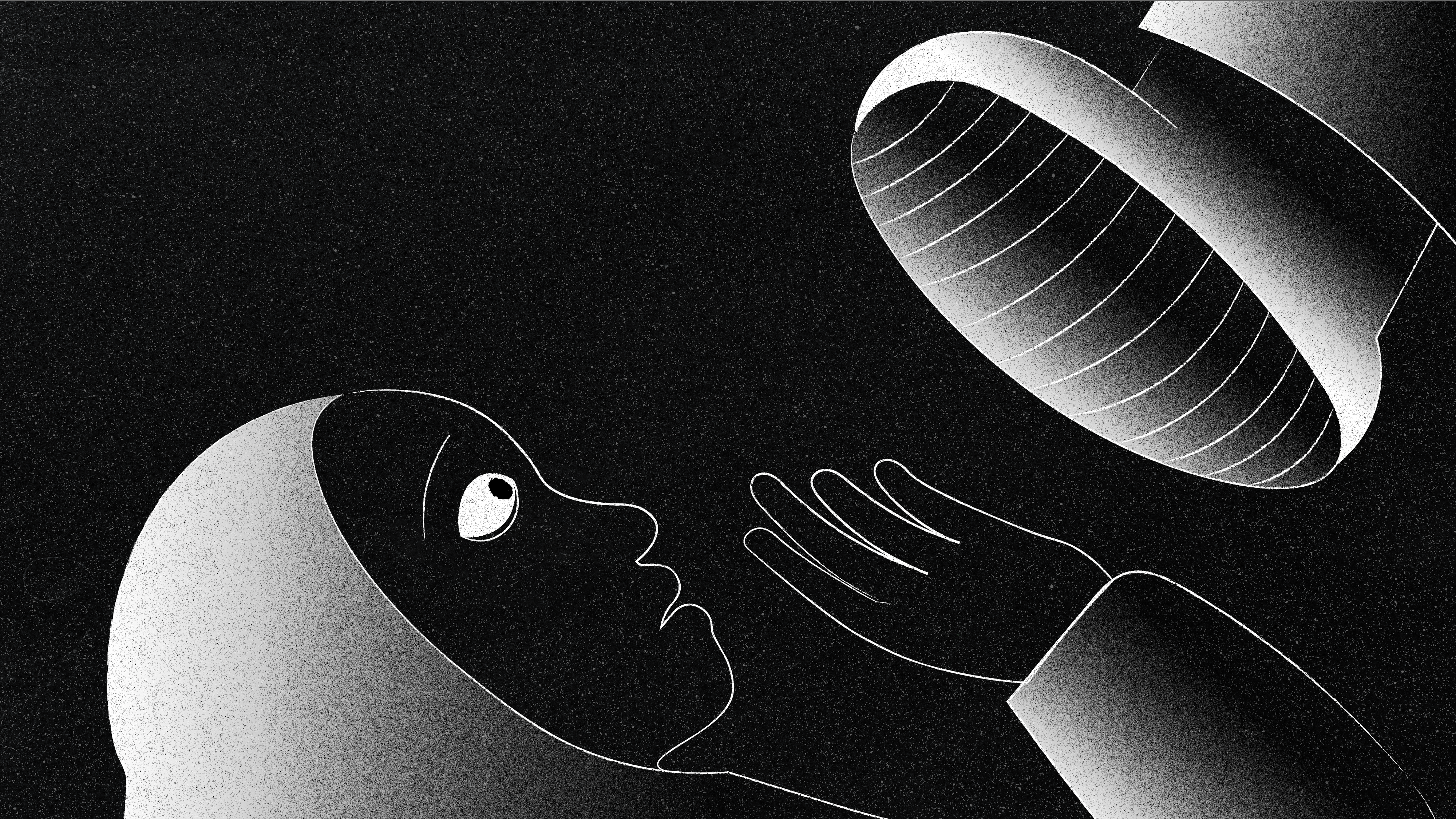
For women fleeing violence, access to healthcare is very challenging as explained by a 30-year-old woman, “I was in the market when they came. I tried to defend myself, but they abused me and beat my chest. I still feel the pain today. After the torture I tried to get treatment, but I did not have money to do an X-ray.”
Another woman in her 30s says, “I have spent two days without eating anything. I was collecting leaves to cook them. I had to sneak out in the bushes to avoid checkpoints to get medical care in Hajar Jawad. During the rainy season, my child and I had malaria, we received treatment in the clinic in Hajar Jawad [an MSF clinic] for malaria and malnutrition.”
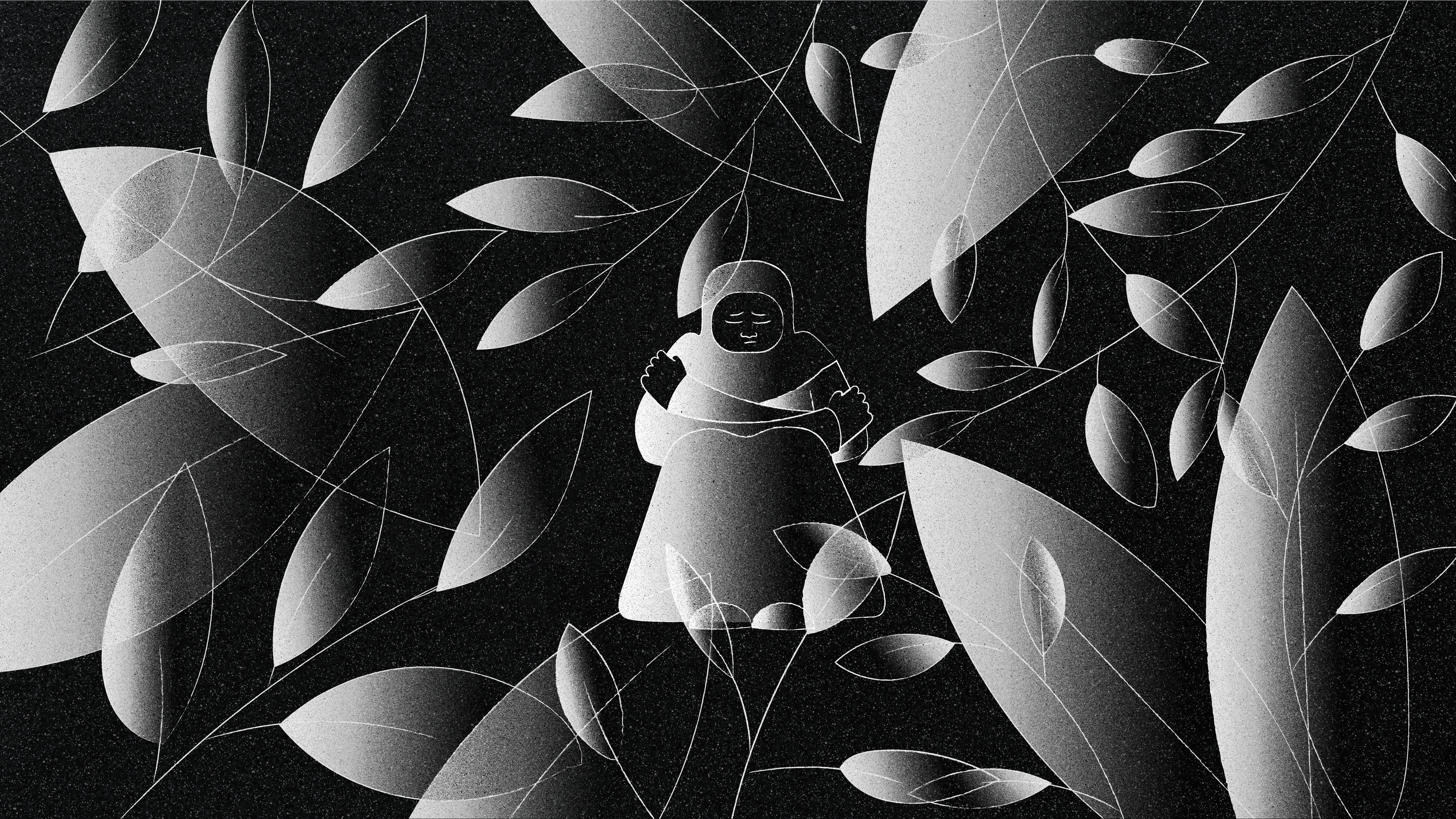
MSF’s work in Dalami, western Jebel and Nuba Mountains
MSF runs activities in Dalami locality and western Jebel. In Dalami locality, our teams support Tujur hospital with emergency room and maternity services, malnutrition and inpatient wards. In January 2025, MSF conducted 20,185 outpatient consultations in the hospital. Close to 460 patients were admitted, 30 per cent of them for malaria. The teams have assisted 119 births and carried out 215 sexual and reproductive health consultations. In Um Heitan, another location where we work, MSF has carried out 6,493 outpatient consultations.
MSF has also been supporting health centres, conducting mobile clinics in camps for internally displaced people and distributing essential items in western Jebel, but the unstable security situation has made the delivery of medical services challenging.
Our teams in the Nuba Mountains observe an extremely inconsistent and insufficient coverage of primary and secondary healthcare. Where care is available, it is often inaccessible due to distance and insecurity. Moreover, there is an almost complete lack of protection services which is particularly concerning given the levels of violence experienced or witnessed by people, the separation of families and the lack of shelter for many.
